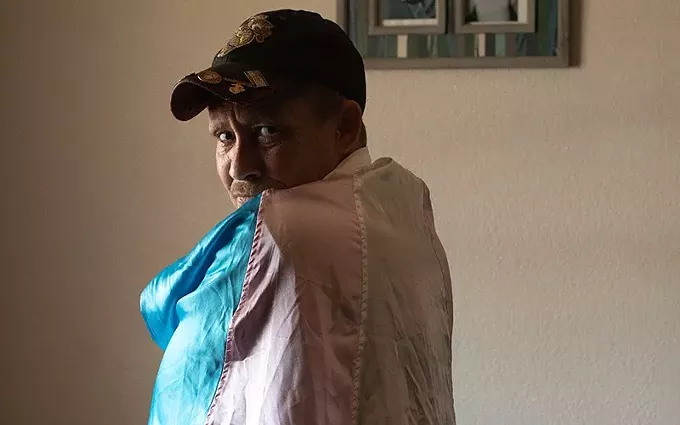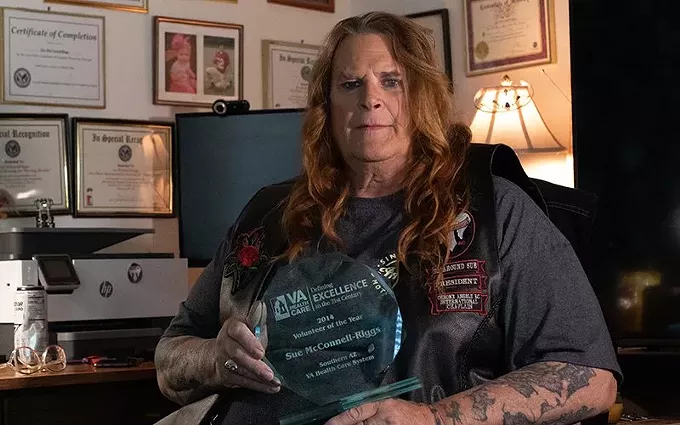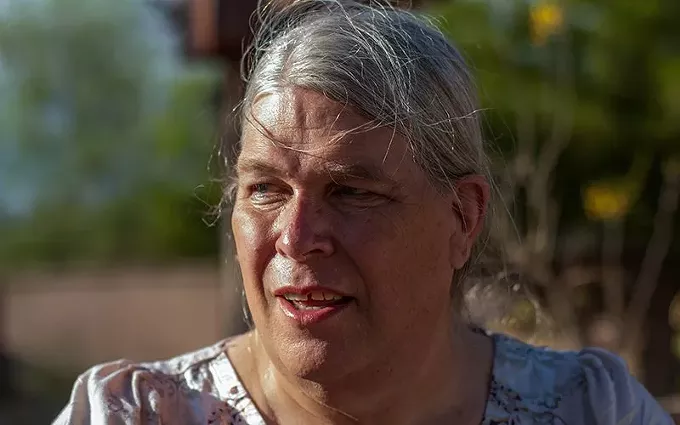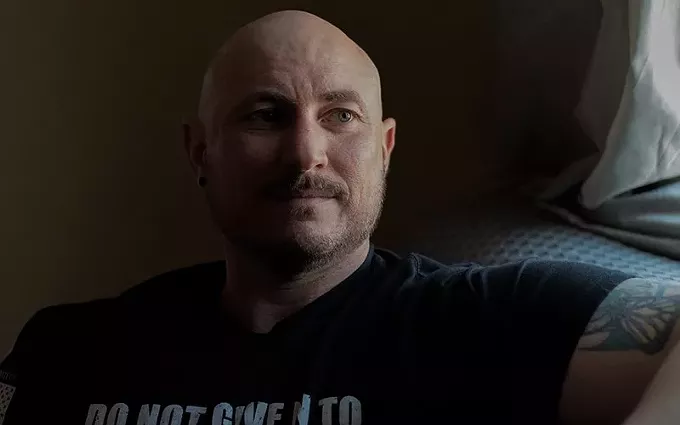
PHOENIX – The status of transgender members of the armed forces has shifted dramatically in the past decade as President Joe Biden and his two predecessors issued conflicting orders defining and redefining the eligibility of transgender Americans to serve their country.
Five days after taking office in January, Biden signed an order to reinstate transgender servicemembers, reversing Donald Trump’s 2019 order, which effectively banned transgender individuals from service. It was just one of a number of Biden reversals of Trump-era rules, the most recent coming Monday when the Department of Health and Human Services said it would again include gender identity as protected by anti-discrimination laws when it comes to delivery of health care.
The Trump administration’s order on military service was a reversal that would have blocked enlistment and expelled service members who have been diagnosed with gender dysphoria and any transgender medical procedures, such as hormones.
According to Palm Center, an independent research institute, Trump’s ban was similar to the “Don’t ask, don’t tell” policy President Bill Clinton put into place in 1994 to address gays and lesbians in the armed forces. The Obama administration repealed “Don’t ask, don’t tell” in 2011, allowing “gay and lesbian” individuals to serve openly.
Although Trump enforced a ban that was not as explicit as “Don’t ask, don’t tell,” it was set up in a way to weed out those in the military who don’t identify with their gender assigned at birth.
According to the Williams Institute at the UCLA School of Law, about 15,500 people in the U.S. military, reserves or National Guard openly identify as transgender, and about 134,000 veterans identify as transgender.
Cronkite News spoke to five transgender veterans in Arizona to gain perspective on what it meant to serve in the military and witness the shifts in how their identities are viewed by the commander in chief. Some reported loss of status and military benefits because of their sexuality, and others reported traumatic experiences while in service, including sexual assault.
Blue Montana of Phoenix
“I woke up and looked at my Facebook. And I said, ‘Oh, good. You know, I don’t matter anymore.’”
When news broke that the Trump administration would ban transgender Americans from the military, Blue Montana’s immediate concern was for his transgender friends who were still in the military.
“Some of them were officers, they’ve (had a) 10-, 15-, 20-year career. Are they going to get kicked out? Are they going to get court-martialed? Like, what’s going to happen?”
As a transgender man, Montana still is denied benefits and medical access that veterans rely on for treatment of injuries and mental health issues. Before he transitioned, he served in the Marine Corps for more than a decade until he was outed.
It happened during Montana’s second tour in Iraq when he was severely injured in an explosion, causing traumatic brain injury, broken bones and other wounds. Montana was a lesbian at the time and had kept it secret, telling his superiors that his partner was his sister. After she called the hospital to ask about his injuries, Montana’s sergeant spoke to his mother, who told them Montana had no sister and the caller was his lover, and Montana’s secret was out.
Montana thought to deny the truth at first, he said, but felt lying “would have been violating the honor of the Marine Corps.”
After being threatened with a court-martial, Montana was given an “other than honorable discharge” in 2005 under the “Don’t ask, don’t tell” policy.
“Even sometimes now, I’m still not proud to say I’m a veteran. Because of the way I got discharged, because then people start asking questions.”
When he started his transition in 2005, Montana flew home to Chicago to take care of his mother as she fought cancer. His family was not understanding about his transition, so he had to stop taking hormones. He said he struggled to cope with mental health issues and post-traumatic stress disorder, which led him to abuse alcohol until he was hospitalized for alcohol poisoning.
“I woke up in the hospital one day in the emergency room like, ‘How did I get here?’ and they were like, ‘You blacked out from drinking.’”
Montana said his PTSD stemmed from violence he witnessed in Iraq, including a friend who was killed by an improvised explosive device. His emotional health was also harmed during a special assignment to accompany the bodies of soldiers to the U.S., traveling back and forth to Dover Port Mortuary at Dover Air Force Base. He also helped notify families of their loved one’s deaths.
“Some of the stuff I saw really kind of haunts me,” Montana said as tears filled his eyes.
Since his service, Montana has worked as a transgender program manager at The Center, a nonprofit in Las Vegas, and has been a trans activist since 2009.
Montana still questions if he should try to get his discharge reversed.
“Everybody tells me I should and I know that I should, (at) this point I just honestly don’t even know if I really care more. I know who I am, I know what I did. I mean, I kind of don’t want to be part of a system that didn’t want me.”
Sue McConnell of Tucson
Before her gender transition, Sue McConnell served with her brother on the same ship to stay close to him.
“My brother’s always been my hero. And he was in the Navy, so I joined the Navy.”
She was 18 when she enlisted in 1971. She did a nine-month tour during the Vietnam War as a boiler technician on the USS Mount Hood.
“But in retrospect, you know, my brother was achieved,” she recalled, “and I was, you know, at the bottom.”
The night before McConnell was honorably discharged from the Navy in 1972, she said she was “raped, sodomized, left for dead” by six men. According to a previous Cronkite News article, she didn’t report it but later filed for service-connected disability. She said the process took nearly 20 years to finally be granted disability for military sexual trauma.
McConnell, 68, now volunteers for the Southern Arizona Veterans Affairs Health Care System and is president of an all-women’s motorcycle group, Chrome Angelz RC Desert Roses. In 2014, she became the first trans woman to win the volunteer of the year award in the women’s category at the Southern Arizona VA.
McConnell is happy the transgender ban was reversed but knows many taxpayers are unhappy with the decision. According to Military OneSource, once an individual signs up for the military they have access to TRICARE, which is the military’s health care program.
“It is cheaper in the long run for someone to have reassignment surgery than for years and years of medications. If your ass is in a sling, and you’re pinned down, you’re screwed and you have help coming. Do you care if they’re gay, or if they’re transgender?”
Danielle Lynch of Scottsdale
“Why not use the military as a place for trans people to get an education or work and do a job that’s necessary for the functioning of our nation?”
Danielle Lynch was 23 when she joined the Navy in hopes of supporting her spouse and first child. At the time, she identified as a man. She excelled in coursework and distinguished herself at the Naval Station Great Lakes in North Chicago.
“And so my classmates started coming to me every time we would finish a test. After I would finish I would go downstairs and they’re finished. What’d you get for number 18, what’d you get for number 15?”
Depending on the answer Lynch calculated, her classmates would know whether they got the question right or wrong.
After her Navy schooling, Lynch spent four of her six years in the military on the USS Hué City. She says she is most proud of the time she spent as combat systems officer of the watch, responsible for the maintenance of the ship’s weaponry. Her rank was a petty officer second class, but she says the other officers received greater pay than she did.
“This kind of environment for me it just wasn’t good at the time … my transness maybe at the time may have lent itself to me being unhappy … especially being aboard a ship with nothing but men,” Lynch said. “I really wanted to be able to have the option to experiment with my own self, and be able to potentially have the life that I want to live. And I knew that in the military, there’s absolutely no way that I could do that.”
Lynch left the military in 1997 to pursue a job with Intel, where she is now a quality reliability research and development engineer.
Twelve years after joining Intel, Lynch, then 40, decided she wanted to transition. When she was younger, she had thoughts of wanting to be a female, but it was an idea that had not yet become reality. In part, she struggled to find representation or guidance in the way trans people were depicted.
“There were so many TV shows, like Jerry Springer and those kinds of (shows), you know, like, that really sensationalized trans people,” Lynch said. “I always looked at those and thought, you know, maybe that’s not what I am, then I think when I was younger … that’s a possibility, like, that’s what I could be. But then after I saw these shows that kind of depicted them as these crazy people … and characters or stereotypes. I’m like, well, that’s not me.”
When the Trump administration officials enacted the ban, Lynch said, they were projecting their own feelings of transgender individuals rather than using data.
“They’re trying to use feelings and religion to discount the experiences of trans people or prevent them from being home, basically, some people want to serve in the military. And some people, you know, maybe who have already come out or came out at an earlier age, might need the military to get that kind of a background in education like I did.”
Lynch is grateful for the reversal of the ban, but she hopes that future administrations continue to be pro-transgender.
“I worry that you know, in three-and-a-half years or what have you, that we’re going to elect somebody that isn’t as pro-trans as what we have now and they’re going to flip-flop back the other way and ban it again.”
Erin Russ of Tucson
White high-heeled boots, a white cashmere dress with a matching sweater and a blonde wig. That’s what Erin Russ was wearing when she got caught cross-dressing by a police officer, which resulted in her discharge from the Army in 1990.
At the time, Russ was a company commander and infantry officer. Her brigade commander managed to talk the commanding general out of court-martialing Russ, so she was able to resign. That resignation later turned into a discharge from the Reserves when Russ declined an offer to serve in the infantry again because she didn’t want to explain why her security clearance had been pulled.
Russ first received orders to report for active duty in 1981 and ended up in Fort Hood the next year. Before she served in the Army, she was commissioned in the ROTC program at Syracuse University. She also spent three-and-a-half years working with the National Guard.
Russ was still in the Army, living in Anchorage, Alaska, when she began seeing a therapist for her gender dysphoria. One day her therapist presented two options she would never forget: to “learn to live with this,” or to fight it, adding that he would be there for her if she transitioned.
Shortly after, she was relieved of her command and chose to continue “letting Erin out of the bag.”
Russ moved to Tucson in 2000, where she later got to work at the Southern Arizona Gender Alliance and received the Godat Award, awarded by southern Arizona’s LGBTQ community, in 2020.
But leaving the military continued to wear on Russ, who struggled with depression and felt like she let down her brothers-in-arms.
“One of the aspects of being transgender and having been kicked out of the service that people don’t realize is that a lot of us who were trans and left the service either on our own or otherwise, sometimes we look back and wonder whether or not we failed our fellow servicemen.”
Before Biden’s repeal of the ban, she said, transgender Americans nationwide had worked hard to reverse the Trump ban, but weren’t able to change the administration’s mind.
“I think that there are a number of transgender women and transgender men who can do the job. If they’re allowed to, especially if they start their transition when they go … if I’d been allowed to stay in a service, I would have been.”
Trey Sheidler of Phoenix
Trey Sheidler joined the Air Force in 2006 and was stationed at Luke Air Force Base, west of Glendale.
His dad and sister had been in the Army, and enlisting would give him access to a college education, which was a big motivator for him to sign up.
Early in his Air Force career, he realized he’s transgender.
“When my time was up, I was like, I can’t not live my life anymore. So that’s why I actually ended up getting out, so I could transition.”
When he left the Air Force in July 2010, he visited a therapist to talk about the transitioning process, and in November 2010, he started taking testosterone and got top surgery the next month. At the same time, Sheidler enrolled in Glendale Community College to earn an associate's degree in strength, nutrition and personal training. In 2011, he became a certified personal trainer.
Sheidler not only underwent a fitness transformation, he went through another transformation, from female to male, at age 27.
“It’s kind of why I got into personal training, just because I wanted to kind of build a body that matched what I saw myself as in my mind.”
About 50% of his clients are transgender he said.
When the ban was reversed in April of last year, Sheidler, 38, was at a loss for words.
“It doesn’t even seem real. That could have completely changed my life and my options at the time.”





